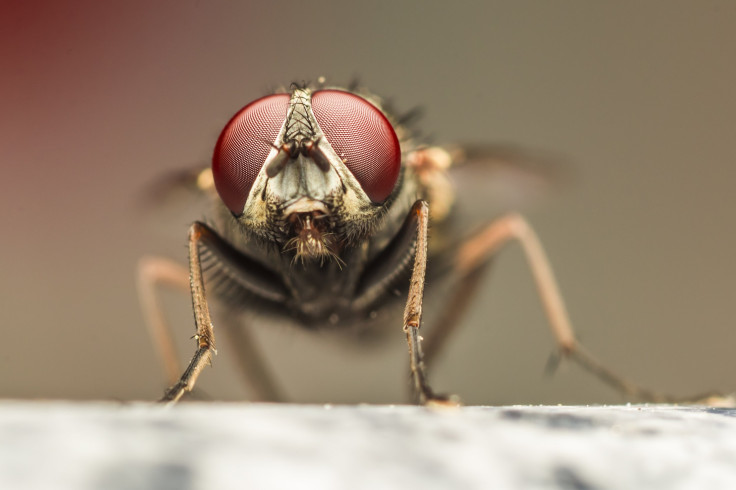Study Links Lack Of Sleep In Young Flies To Lack Of Sex Life; May Give Clue To Human Behavioral Patterns

If you really want to get a young boy settled in for bedtime, try reading him this new study from the University of Pennsylvania. It links lack of sleep in young fruit flies to poor sexual abilities in adulthood and will surely be a bedtime story that’ll get him to fall asleep fast. In the recent study, scientists were able to pinpoint the specific neural network that is affected by lack of sleep. Although the study was done on insects, researchers believe that the results do provide the first mechanistic link between sleep in early life and adult behavior.
The study set out to answer two questions: Why do young animals sleep so much and what would happen if sleep was disrupted? It was published this week in Science, conducted by researchers at the university's Perelman School of Medicine.
The researchers used generically manipulated flies in their experiment. They were able to show that young flies normally produce relatively little dopamine, a neurotransmitter that promotes sleep, in certain neural circuits that feed into the sleep-promoting brain regain called the dorsal fan-shaped body (dFSB). This answered the first question of why young animals slept so much. “Young flies make less dopamine, which keeps the dFSB active and sleep levels high. These animals sleep more than adults and are harder to rouse from sleep,” Amita Sehgal, led researcher in the study, explained in a press release.
Through observation, the researchers were able to answer the second question of what a lack of sleep caused. Results showed that increased dopamine in young flies not only caused sleep loss but also affected their ability to court when older. “The flies spend less time courting, and those that do usually don’t make it all the way to the end,” Sehgal added.
What is most remarkable about this study is that researchers were able to pinpoint the specific neural network that is less active in young flies. When researchers actived that circuit, they were able to disrupt courtship by impairing the development of a different, courtship-relevant circuit.
Researchers emphasize that these findings provide no direct link between sleep in infancy and its effects on adulthood in humans. However, the results do provide good evidence that such a link may exist.
Source: Kayser MA, Yue Z, Sehgal A. A Critical Period of Sleep for Development of Courtship Circuitry and Behavior in Drsophilla. Science. 2014
Published by Medicaldaily.com



























